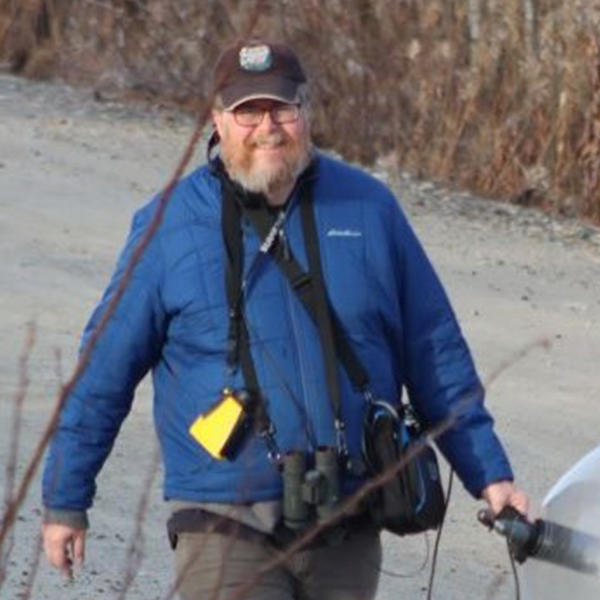Douglas Wacker, Associate Professor

Contact
Location: INV-240E
Phone: 425-352-3723
Email: dwacker@uw.edu
Biography
One thing that I love about the University of Washington Bothell is its great diversity of students. There are undergraduates from numerous ethnic and cultural backgrounds, first generation college students and adults who have decided to come back to school, people coming from a myriad of economic backgrounds, local Washingtonians, and folks from all of the United States and beyond! One goal of mine is to make biology interesting and accessible to all of my students, regardless of their backgrounds. I try and get to know all of my students, and luckily, UW Bothell is small enough that faculty and students can interact regularly.
Many of the biology majors that I speak with hope to one day establish a career in the biological sciences. However, I know that some will not pursue that goal. I strive to provide my students with an environment where they can garner quantitative reasoning skills that will help them regardless of their eventual profession. Many of my students hope to pursue work in human health professions. As such, my classes include examples from human biology. However, I try to introduce interesting non-human biological systems as well. Not only is a strong background in comparative biology important for students planning to attend graduate (PhD) school, it also allows for a more sophisticated understanding of basic principles that will aid any doctor, physician’s assistant, or pharmacist. Such understanding also helps non-biologists to become responsible, science-literate citizens.
I am very passionate about helping students learn HOW to conduct science. One of my favorite courses is B Bio 495, Investigative Biology where students work in small groups to conduct research projects. In this course, students can participate in all aspects of scientific inquiry – from hypothesis and prediction generation to data collection to analysis and presentation. Investigative Biology also allows undergraduates to see what working in biology is really like, which can be quite different from reading about it in a textbook.
Research
I am interested in the behavior of free-living vertebrates. Much of my previous work has involved learning how circulating hormones and the brain interact to alter social behavior in birds. More recently, I’ve also pursued purely behavioral studies. Here is a list of my current research projects/interests.
Crow Communication in Social Aggregations
UW Bothell is home to a large nocturnal crow roost on our North Creek Wetlands Restoration, likely consisting of 10-15,000 crows in the winter. Each day, prior to and after roosting, crows form pre- and post-roost aggregations. I am interested in 1) how crows communicate on these aggregations and, more generally, 2) how crows combine vocal and non-vocal behaviors to communicate in social groups. My current undergraduate research assistants are recording audio and video of crows from a variety of contexts, and analyzing their data using audio analysis software. In the future, we hope to incorporate the use of crow models and telemetry to further decipher whether and how crows might share information in social aggregations.
Song Sparrow Territoriality
Song sparrows are year-long residents of Washington State, establishing territories in many areas, including on the North Creek Wetlands Restoration. I am interested in how their territorial behavior changes seasonally, between sexes, and across environments and contexts. I am also interested in how androgens and glucocorticoids modulate seasonally changing aggression in this species. We are currently identifying the territories of, and banding male and female song sparrows on the North Creek Wetlands and in other areas of Washington State, and collecting small plasma samples for endocrine analyses.
Education
Indiana University, Bloomington, Indiana
B.A. Criminal Justice and B.A. Telecommunications
University of Alaska Fairbanks, Fairbanks, Alaska
B.S. Biological Sciences
University of Washington, Seattle, Washington
Ph.D. Neurobiology and Behavior
Courses
- B BIO 310 Brain and Behavior
- B BIO 355 Behavioral Endocrinology
- B BIO 385 Animal Behavior
- B BIO 495 Investigative Biology